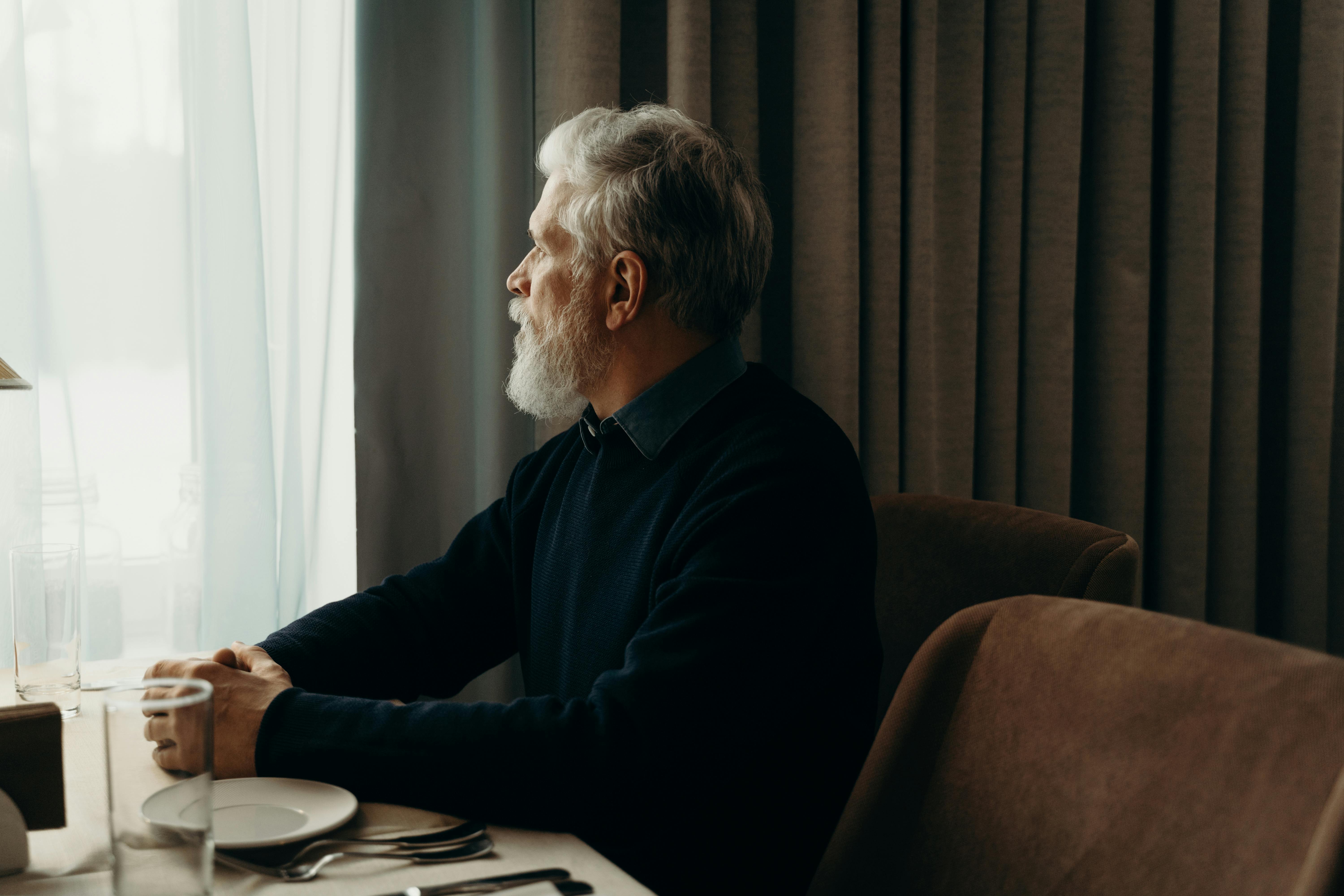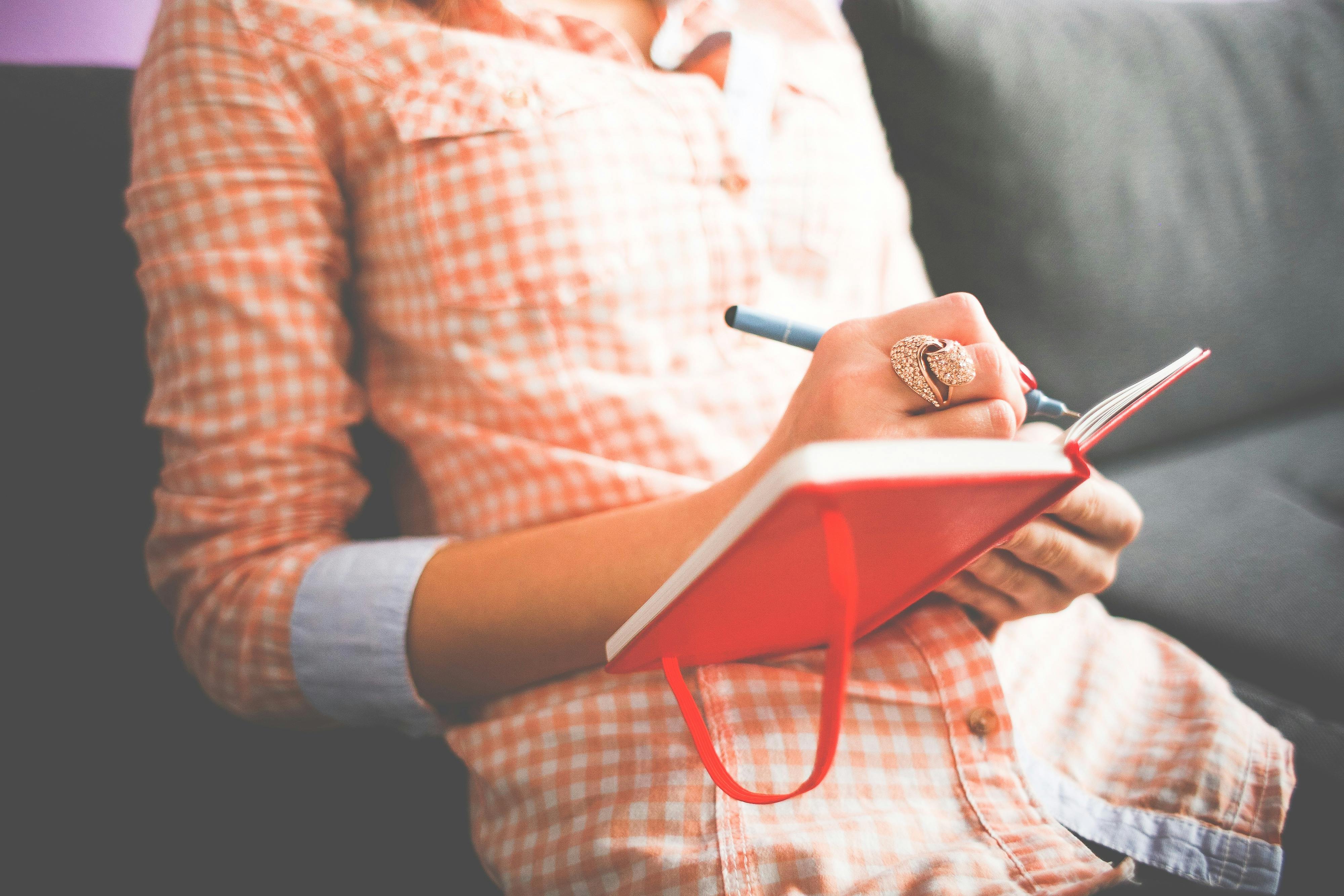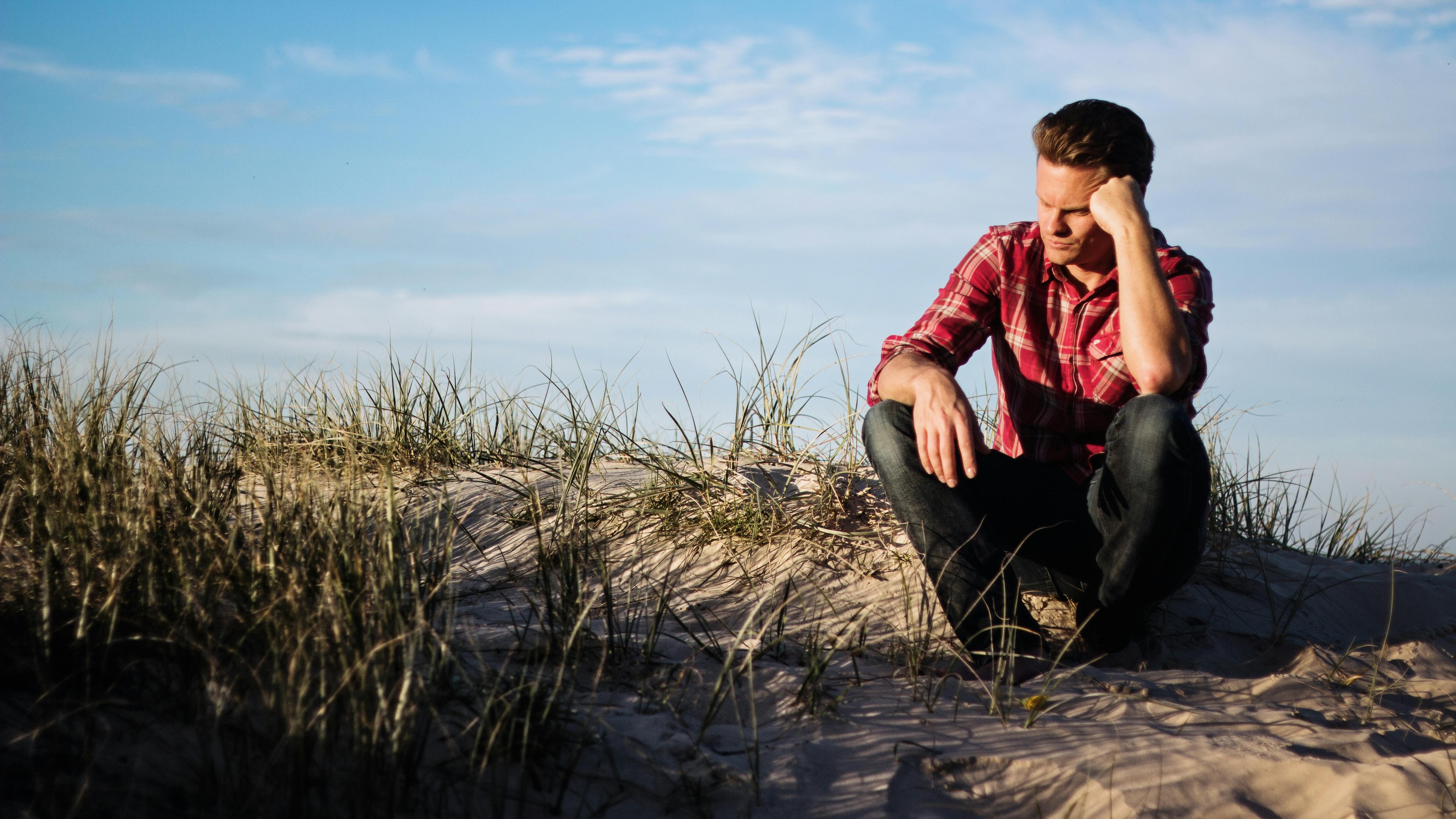Waking Up with Anxiety: Causes, Symptoms, and What You Can Do
Author:
Blossom Editorial
Nov 21, 2025
Waking up with anxiety is more common than you might think, affecting numerous people who start their day feeling worried, tense, or overwhelmed before their feet even hit the floor. This form of morning anxiety can make getting out of bed feel impossible and set a difficult tone for the entire day. Understanding why anxiety strikes in the morning and what you can do about it can help you reclaim your mornings and feel more in control.
Key Takeaways
Cortisol normally rises after waking in what’s called the cortisol awakening response (CAR). In some people with anxiety disorders, the CAR may be altered or exaggerated, which can contribute to morning anxious feelings. This may be compounded by factors like sleep quality, blood sugar levels, and anticipatory worry about the day ahead.
Physical symptoms, including racing heart, tightness in the chest, nausea, and muscle tension, are normal responses to morning anxiety and typically don't indicate a medical emergency, though persistent symptoms warrant evaluation by a healthcare provider.
Managing morning anxiety effectively involves both immediate strategies like deep breathing and grounding techniques, plus longer-term approaches, including establishing consistent sleep routines, addressing underlying anxiety disorders, and working with mental health professionals when needed.
What Is Morning Anxiety?
Although morning anxiety isn’t a clinically diagnosed mental disorder, it generally refers to feelings of worry, nervousness, or dread that occur upon waking or during the first few hours after getting up. Unlike general anxiety, which can happen at any time, morning anxiety specifically appears during the transition from sleep to wakefulness and the early part of the day.
People experiencing morning anxiety often describe feeling their worst right after opening their eyes, with symptoms that may gradually improve as the day progresses. For some, the anxiety is situational and related to specific stressors like work deadlines or relationship issues. For others, especially those who may be suffering from anxiety disorder, the anxious feelings can appear without any clear trigger, making mornings consistently difficult.
Research suggests that several people (though, not all) with generalized anxiety disorder frequently experience heightened symptoms in the morning, though anyone can experience occasional morning anxiety during stressful life periods.
This pattern differs from simply not being a "morning person" or feeling groggy after waking. Morning anxiety involves genuine psychological distress and often physical symptoms that go beyond normal tiredness or reluctance to start the day.
Common Symptoms of Waking Up with Anxiety
Morning anxiety manifests through both psychological and physical symptoms that can range from mild to severe, depending on the individual and underlying causes.
Psychological symptoms include:
Sense of impending doom or worry
Racing or intrusive thoughts
Difficulty concentrating or focusing
Irritability or feeling on edge
Overwhelming sense of dread about the day
Difficulty making decisions
Feeling detached or disconnected from reality
Physical symptoms include:
Rapid or pounding heartbeat
Chest tightness or difficulty breathing
Nausea or upset stomach
Muscle tension, especially in the neck and shoulders
Sweating or hot flashes
Trembling or shaking
Dizziness or lightheadedness
Fatigue despite having just slept
Many people report that these symptoms feel most intense within the first 30 minutes to an hour after waking, though they can persist longer. The physical sensations can be so uncomfortable that they make getting out of bed or starting daily routines feel nearly impossible.
Why Does Anxiety Happen in the Morning?
Several biological, psychological, and lifestyle factors can contribute to anxiety during the morning hours.
Cortisol and the Stress Response
Your body's natural cortisol rhythm plays a significant role in morning anxiety. Cortisol levels naturally peak within 30-45 minutes after waking in what's called the "cortisol awakening response." While this hormone surge is normal and helps you feel alert, people with anxiety disorders may experience an exaggerated response that triggers anxious feelings.
Studies have found that individuals with anxiety disorders often show altered cortisol patterns, including higher morning cortisol levels that can intensify anxiety symptoms right after waking.
Blood Sugar Fluctuations
After several hours without food during sleep, your blood sugar levels drop to their lowest point. Low blood sugar can trigger symptoms remarkably similar to anxiety, including shakiness, rapid heartbeat, and sweating. This is more relevant for people with diabetes or those with irregular eating patterns. Your body responds by releasing adrenaline to raise blood sugar, which can compound morning anxiety.
Make sure to discuss testing with a provider if you suspect low blood sugar.
Sleep Quality and Sleep Disorders
Poor sleep quality or undiagnosed sleep disorders can contribute to morning anxiety. Research shows that sleep deprivation and poor sleep quality increase anxiety and reduce emotional regulation; improving sleep often reduces morning anxiety symptoms.
Anticipatory Anxiety
Worrying about the day ahead can create a self-perpetuating cycle. If you're facing stressful situations like difficult meetings, conflicts, or overwhelming responsibilities, your mind may begin processing these concerns as soon as you regain consciousness.
Anticipatory anxiety activates the same stress response systems as actual threats, causing your body to react as if the feared event is happening immediately rather than hours away.
Medication Timing
Certain medications, particularly those for anxiety or depression, may have effects that wear off overnight. If you take medication in the morning or early evening, its blood levels may be lowest upon waking, potentially contributing to breakthrough anxiety symptoms before your next dose.
Note: If you suspect overnight medication ‘wear-off’ as a possible cause of morning anxiety, discuss timing, formulation, or dosing adjustments with your prescriber rather than changing medication yourself.
Caffeine and Substance Use
Evening caffeine consumption can interfere with sleep quality, even if you manage to fall asleep. Caffeine has an average half-life of ~5 hours (range between 1.5 – 9.5 hours), meaning afternoon or evening consumption can still affect your system the next morning. Similarly, alcohol may help you fall asleep, but it disrupts sleep architecture and can worsen morning anxiety.
The Connection Between Sleep and Morning Anxiety
The relationship between sleep and morning anxiety is bidirectional, with each influencing the other in ways that can create a challenging cycle. Poor sleep quality makes you more vulnerable to anxiety the following day.
Conversely, anxiety about sleep itself can create sleep problems. People who worry about not sleeping well often develop conditioned arousal where the bedroom and bedtime become associated with anxiety rather than rest, a pattern called psychophysiological insomnia.
REM Sleep and Emotional Processing
During REM (rapid eye movement) sleep, your brain processes emotional experiences and memories. Disrupted REM sleep can interfere with this emotional regulation, leaving you more emotionally reactive and anxious upon waking.
Studies suggest that REM sleep helps reduce the emotional intensity of experiences, essentially providing overnight therapy for emotional content. When this process is interrupted, unprocessed emotional material may contribute to morning anxiety.
Sleep Disorders That Worsen Morning Anxiety
Several sleep conditions specifically increase the likelihood of waking with anxiety:
Sleep apnea: Repeated breathing interruptions trigger stress responses throughout the night, and the associated oxygen drops can cause morning headaches, fatigue, and anxiety.
Insomnia: Difficulty falling or staying asleep creates sleep debt that amplifies anxiety sensitivity and emotional reactivity.
Nightmare disorder: Frequent disturbing dreams can cause you to wake feeling frightened or distressed, with anxiety that persists into the morning. Over time, this could lead to sleep deprivation, which may perpetuate morning anxiety.
Creating a Routine That Supports Mental Health
A structured, supportive routine can significantly reduce anxiety and set a positive tone for the day.
The Night Before
Preparing the night before reduces morning decision-making and stress:
Lay out clothes for the next day
Pack your bag or prepare materials needed
Set up the coffee maker or breakfast items
Write a brief to-do list to clear your mind
Set your alarm to allow adequate time without rushing
Upon Waking
Create a consistent sequence that your brain associates with safety and calm:
Stay in bed for a few moments: Rather than jumping up, take 5-10 deep breaths while still lying down
Express gratitude: Identify three things you're grateful for before checking your phone
Gentle movement: Simple stretches or yoga poses to ease physical tension
Hydrate: Drink a glass of water to rehydrate after sleep
Eat breakfast: A balanced meal to stabilize blood sugar
Limit news and social media: Avoid anxiety-triggering content during your most vulnerable time
Building in Buffer Time
Rushing amplifies anxiety. Build extra time into your morning so unexpected delays don't create stress. Even an extra 15-20 minutes can make mornings feel significantly more manageable.
Incorporating Enjoyment
Include something you genuinely enjoy in your morning routine, whether it's savoring a favorite beverage, listening to music, spending time with a pet, or reading something uplifting. Positive experiences help counterbalance anxiety.
More Strategies to Calm Morning Anxiety
In addition to having a daily routine, the following strategies can help you feel calm and start your day on better footing.
Deep Breathing Techniques
Controlled breathing directly counteracts the physiological anxiety response by activating your parasympathetic nervous system. Research shows that slow breathing can reduce anxiety and improve emotional regulation.
Try this simple technique while still in bed:
Breathe in slowly through your nose for a count of four
Hold your breath for a count of four
Exhale slowly through your mouth for a count of six
Repeat for 5-10 cycles
The longer exhale is key, as it signals your nervous system that you're safe and can relax.
Grounding Techniques
Grounding exercises help redirect your attention away from anxious thoughts and back to the present moment. The 5-4-3-2-1 technique is particularly effective:
Identify 5 things you can see
Identify 4 things you can physically feel
Identify 3 things you can hear
Identify 2 things you can smell
Identify 1 thing you can taste
This sensory exercise interrupts the anxiety cycle and brings you back to the present rather than worrying about future events.
Progressive Muscle Relaxation
Tension often accompanies morning anxiety. Progressive muscle relaxation has been shown to reduce anxiety symptoms by systematically releasing physical tension.
Starting with your toes and moving upward, tense each muscle group for 5 seconds, then release and notice the sensation of relaxation for 10 seconds before moving to the next muscle group.
Movement and Stretching
Gentle movement helps metabolize stress hormones and releases tension. Even simple stretches in bed or a few minutes of gentle yoga can shift your physiological state and reduce anxiety symptoms.
Delaying Decisions and Demands
Recognize that your anxiety may be distorting your perception in the morning. When possible, avoid making important decisions or tackling challenging tasks during your most anxious period. Give yourself permission to ease into the day gradually.
When to Seek Professional Help
Knowing when to reach out for professional support can make a significant difference in your quality of life and ability to manage morning anxiety effectively.
Consider consulting a mental health professional if:
Morning anxiety persists most days for several weeks despite self-help efforts
Anxiety prevents you from getting to work or fulfilling responsibilities
You experience panic attacks upon waking
Morning anxiety is worsening over time
You're using alcohol or other substances to cope with morning anxiety
You experience thoughts of self-harm or suicide
Physical symptoms like chest pain or difficulty breathing cause significant concern
Sleep problems persist despite good sleep hygiene
Morning anxiety significantly impacts your relationships or quality of life
Seek immediate help if you experience:
Thoughts of harming yourself or others
Inability to care for yourself or complete basic daily tasks
Severe panic that doesn't resolve with usual coping strategies
Concerning physical symptoms like chest pain that could indicate a medical emergency
Your primary care provider can evaluate whether medical conditions might be contributing to your symptoms and can refer you to mental health specialists when appropriate.
Getting Started with Blossom Health
If morning anxiety is interfering with your ability to start your day or impacting your overall quality of life, professional support can help you develop effective strategies and find lasting relief.
Blossom Health connects you with board-certified psychiatric providers who understand the complex factors contributing to morning anxiety. Our telehealth platform makes it easy to access expert care without the added stress of in-person appointments.
Getting started is simple:
Step 1: Enter your state and insurance information to confirm coverage
Step 2: Select an appointment time that works for your schedule
Step 3: Meet with your provider via secure video call from home
During your initial appointment, your provider will conduct a thorough evaluation of your morning anxiety symptoms, sleep patterns, medical history, and overall mental health. Together, you'll develop a personalized treatment plan that may include therapy techniques, medication if appropriate, and practical strategies tailored to your specific situation. Begin your journey with Blossom Health today.
Medical Disclaimer
This article is for informational purposes only and is not a substitute for professional medical advice, diagnosis, or treatment. Morning anxiety can have various underlying causes, and appropriate treatment varies significantly between individuals.
Always consult with your healthcare provider before making decisions about medication, treatment changes, or if you're experiencing persistent or severe morning anxiety. If you're having thoughts of self-harm or experiencing a mental health crisis, seek immediate help by calling 911 or the National Suicide Prevention Lifeline at 988.
Never stop taking prescribed medications without consulting your doctor first, as discontinuation can cause withdrawal symptoms or worsening of your condition.
Sources
Clow, A., Hucklebridge, F., & Thorn, L. (2010). The cortisol awakening response in context. International review of neurobiology, 93, 153–175.
https://pubmed.ncbi.nlm.nih.gov/20970005/
Vreeburg, S. A., Zitman, F. G., van Pelt, J., et al. (2010).Salivary Cortisol Levels in Persons With and Without Different Anxiety Disorders. Psychosomatic Medicine, 72(4):p 340-347.
Aucoin, M., & Bhardwaj, S. (2016). Generalized Anxiety Disorder and Hypoglycemia Symptoms Improved with Diet Modification. Case reports in psychiatry, 2016, 7165425.
https://pmc.ncbi.nlm.nih.gov/articles/PMC4963565/
Shah, A. S., Pant, M. R., Bommasamudram, T., et al. (2025). Effects of Sleep Deprivation on Physical and Mental Health Outcomes: An Umbrella Review. American journal of lifestyle medicine, 15598276251346752. Advance online publication.
https://pmc.ncbi.nlm.nih.gov/articles/PMC12116485/
Grupe, D. W., & Nitschke, J. B. (2013). Uncertainty and anticipation in anxiety: An integrated neurobiological and psychological perspective. Nature Reviews Neuroscience, 14(7), 488–501.
https://pmc.ncbi.nlm.nih.gov/articles/PMC4276319/pdf/nihms524916.pdf
Evans, J., Richards, J. R., & Battisti, A. S. (2024). Caffeine. In StatPearls [Internet]. StatPearls Publishing.
https://www.ncbi.nlm.nih.gov/books/NBK519490/
Institute of Medicine (US) Committee on Military Nutrition Research. (2001). Caffeine for the sustainment of mental task performance: Formulations for military operations (Chapter 2, Pharmacology of caffeine). National Academies Press (US).
https://www.ncbi.nlm.nih.gov/books/NBK223808
West, M. (2023). Everything to know about psychophysiological insomnia. Medical News Today.
https://www.medicalnewstoday.com/articles/psychophysiological-insomnia
van der Helm, E., & Walker, M. P. (2011). Sleep and Emotional Memory Processing. Sleep medicine clinics, 6(1), 31–43.
https://pmc.ncbi.nlm.nih.gov/articles/PMC4182440/
UM Health-Sparrow. (n.d.). Nightmare disorder.
https://www.uofmhealthsparrow.org/departments-conditions/conditions/nightmare-disorder
Ma, X., Yue, Z. Q., Gong, Z. Q., et al. (2017). The Effect of Diaphragmatic Breathing on Attention, Negative Affect and Stress in Healthy Adults. Frontiers in psychology, 8, 874.
https://pmc.ncbi.nlm.nih.gov/articles/PMC5455070/
Muhammad Khir, S., Wan Mohd Yunus, W. M. A., Mahmud, N., et al. (2024). Efficacy of Progressive Muscle Relaxation in Adults for Stress, Anxiety, and Depression: A Systematic Review. Psychology research and behavior management, 17, 345–365.
https://pmc.ncbi.nlm.nih.gov/articles/PMC10844009/
https://www.health.harvard.edu/staying-healthy/exercising-to-relax







































































































































